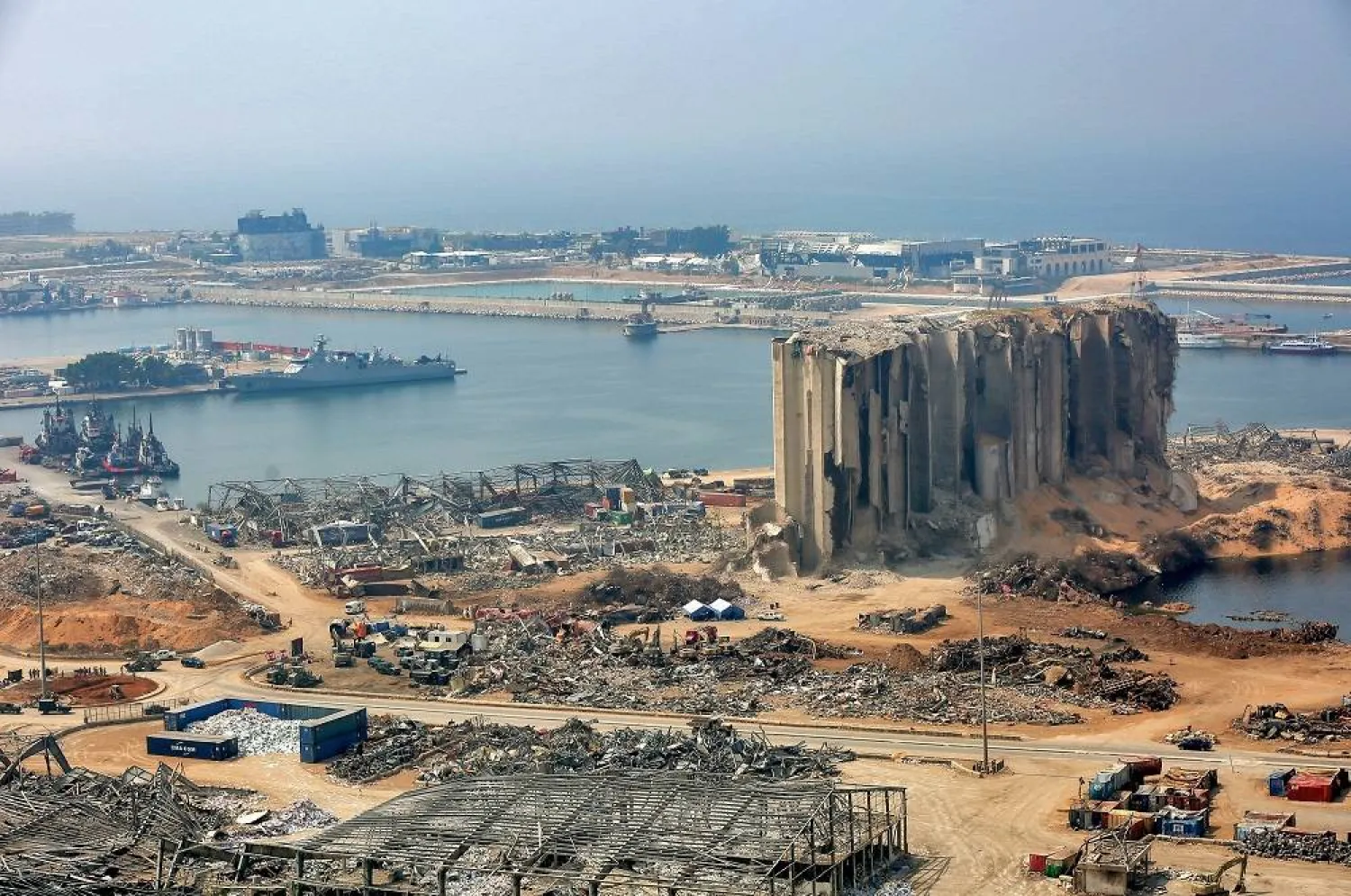Lebanon’s Public Prosecutor Jamal al-Hajjar annulled on Monday a ruling by his predecessor Ghassan Oueidat two years ago that ordered a stop to any cooperation with Tarek Bitar, the judge presiding over the investigation into the Beirut port explosion of August 4, 2020.
Hajjar’s ruling marks a shift in the case and created a shock in political and judicial circles that fear that Bitar will resume his investigation and issue arrest warrants against suspects.
Nerves are especially strained as appointments have been set for March and April to interrogate several security officials and politicians in the case, most notably former Prime Minister Hassan Diab.
No sooner had news of the annulment broken out that lawyers representing the families of the victims and others representing politicians who have been summoned for questioning flocked to the Justice Palace in Beirut to verify the news.
A judicial source told Asharq Al-Awsat that Hajjar had taken a “firm decision in resuming cooperation with Bitar.” He will receive all warrants issued by him, including summons for suspects to appear before interrogation.
Observers attributed Hajjar’s change in position to “massive political pressure he had to endure and the changes that have taken place in Lebanon” after Israel’s latest war on Hezbollah and the party’s significant loss of influence in the country.
The judicial source refused to comment on the speculation.
It instead said that for an entire year since he assumed his post, Hajjar has been advising Bitar to remove politicians from his circle of inquiries because they can only be tried at the Supreme Council.
Hajjar effectively failed in changing Bitar’s convictions, who has been insisting that everyone in the case be included without exception.
“So, Hajjar was forced to resume cooperation with him to avoid accusations that he is obstructing the probe and the truth behind the greatest crime ever committed in Lebanon,” the source said.
Ahead of the annulment, Hajjar, Bitar, President of the Higher Judicial Council Judge Suheil Abboud and Justice Minister Adel Nassar had held a series of meetings at the Justice Palace and Justice Ministry to discuss means in which to resume the cooperation between the Bitar and the Public Prosecution.
Bitar was forced to suspend his investigations for 13 months as a result of 43 lawsuits filed against him, but he remained undeterred, issuing a number of summons in 2022, including one against Oueidat.
Oueidat responded by filing a complaint against Bitar and ordering a travel ban against him that is still in effect. He also ordered the release of all 17 detainees held in the case, in defiance of Bitar’s work.
The judicial investigator has set a session for Friday to probe a General Security officer over his involvement in the case.
Other appointments will probe other officials in the case, including former General Security chief Abbas Ibrahim, former Army Commander Jean Qahwaji and several retired military officers. The probe will be complete with the interrogation of politicians.









